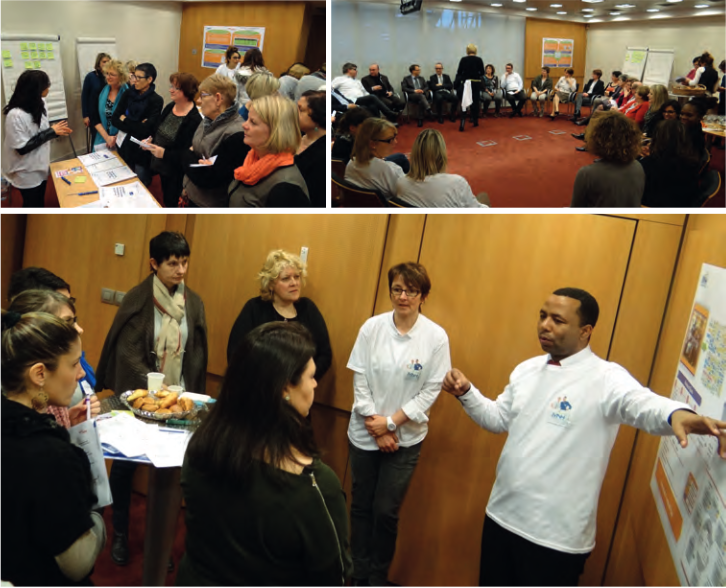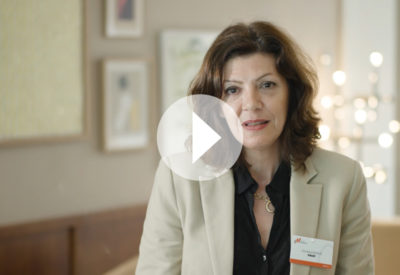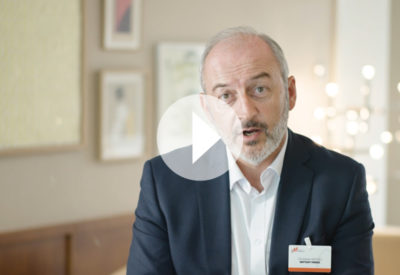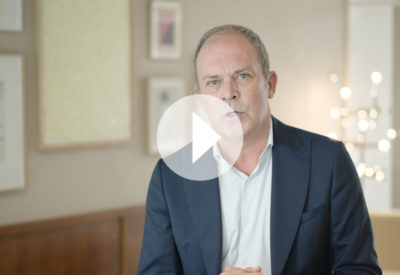More simple and effective for clients
Luc Gibour's testimony
The Mutuelle Nationale des Hospitaliers (MNH) is a long-standing player in the health and contingency sector, and provides insurance services to more than one million policyholders. The company has been swept by a cultural revolution in recent years, and senior management has revised the company's key processes in close cooperation with shop floor teams. The goal is to decompartmentalise the company in order to enhance its operational efficiency and give full customer satisfaction. Luc Gibour, Deputy Managing Director of MNH, explains more.
The project is not called "Operational efficiency" by accident. Its purpose is to bring all of MNH's activities under a continuous improvement umbrella as part of a customer-centred approach. "In the early 2010s, the company had a silo mind-set. Each main department had a set of tasks and mainly worked within their scope of responsibility. Fairly logically, when we launched projects requiring a cross-functional approach, we realised that these operating practices reduced our effectiveness and could limit our capacity for grow".
MNH launched a project for a trial period in the Customer Services Department, as the primary interface between clients and its sales force, on the one hand, and the operational implementation of its policies on the other.
The first Percée ("breakthrough") in the process came with a three-day exercise designed to eliminate waste and simplify tasks for teams and customers.
"With help from Quaternaire, we unpacked each stage in the policy underwriting process, from the customer to the policy manager, by teaming up our employees with contacts who, in hospitals, act as our go-betweens with policyholders and prospects; we even involved a customer panel in the process". This participatory method marked a break with MNH's conventional modus operandi, and reflects how it hopes to operate in the future: innovative, dynamic and responsive, with quick results.
A total of thirty people spent three days challenging and remodelling MNH's work processes. "We organised as many workshop as there were stages in the process, and each sub-group took part in all of the workshops": this major undertaking enabled participants to discuss ideas, challenge each other and identify best practices and practices without added value and lastly to formalise the most effective process for the customer. "This working method raised people's awareness of the challenges we all face and the role they play in achieving the common goal. Our aim was to modernise and decompartmentalise our practices, and this is what we achieved. We wanted tangible outcomes, and that's what we got, particularly in terms of service quality and financial gains". For example, the registration period for a new policy was cut by seven days by eliminating needless toing-and-froing between departments. Another example is the redirection of time released (equivalent to 2.2 FTE) to tasks with higher added value, such as outgoing calls to maintain our customer relations.
Examples of Underwriting process gains
- New policy registration period: reduced by 7 days
- Savings: €166,000
- Time released: 2.2 FTE
- Payment period: 3 days instead of 5
Shared success
After seven months of effort by teams, the work done and results obtained were presented to head office employees. "Our business plan is implemented in close cooperation with shop floor teams; their ownership of this project is the key to its success. The one-day event in January, attended by over 300 employees, was an opportunity to highlight the progress made and to encourage as many people as possible to support the continuous improvement approach."

Visual Management: day-to-day continuous improvement
Six months later, Visual Management was implemented in three policy units and the payment recovery unit. "Visual Management is a means by which process-improvement approaches are applied on a day-to-day basis. Event rituals are used to source suggestions within individual departments. This approach improves our effectiveness: it embeds continuous improvement as a reflex, to the benefit of customers."
Building on the success of the policy underwriting project, senior management decided to extend these breakthroughs to Contacts and Purchasing, and to equip the Information Systems Department with a Visual Management approach.
"The method is being taken up across the company: we've been getting a lot of requests from operational departments - that's the price of success!"
And the cultural revolution has only just begun. According to Luc Gibour: "We need to work within a timeframe and to extend this problem-solving method to the whole company, driven by a genuine determination on the part of the company to implement the solutions of people engaged in the processes on a day-to-day basis in order to improve MNH's overall efficiency. That's what senior management is committed to doing." Following a recent acquisition by MNH, for example, the company expects to "apply the Percée method to strengthen synergies between us, the parent company, and the subsidiaries that have joined us. We don't have the same services but we work with the same clients. We really need to clarify our practices to produce the added value expected when we made these acquisitions. To this extent, the process we have initiated is a lever for developing our cultures and a key driver of added value in our market!"
MNH Group
The world's first health and social insurance company, MNH (Mutuelle Nationale des Hospitaliers) has more than one million policyholders, health and contingency combined. Founded in 1960, it now employs 940 people throughout France and has a turnover of nearly €700 million.
FRONT PAGE !

Knauf France: CEO's testimony
Christine Muscat, CEO of Knauf France, talks about the multi-site operational excellence project deployed at 23 of the group's sites.

Brittany Ferries: CEO's testimony
Christophe Mathieu, CEO, talks about the performance-based purchasing approach launched by Brittany Ferries with the creation of a purchasing department

Crédit Agricole Sud Méditerranée: CEO's testimony
Nicolas Tavernier, CEO, talks about the construction of Crédit Agricole Sud Méditerranée's new corporate project and its operational support.

